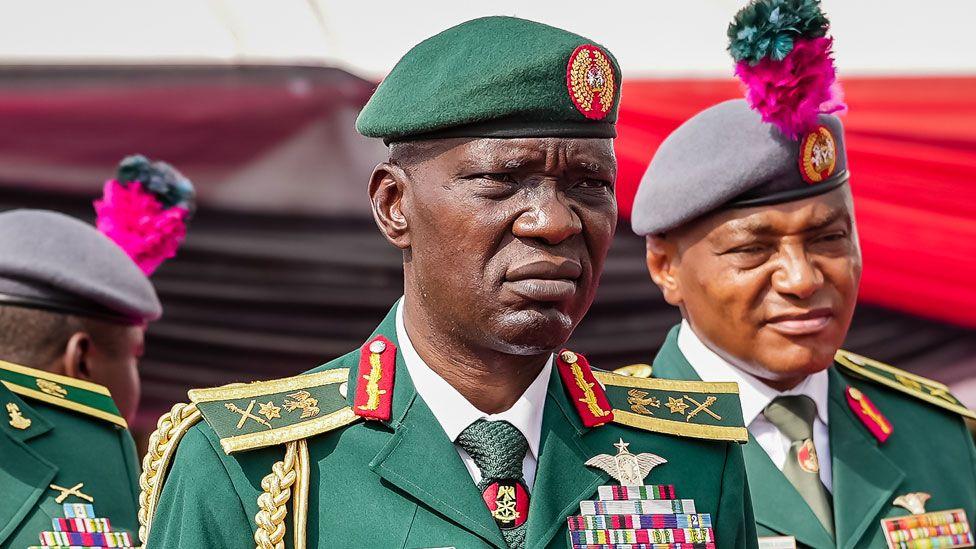Nigeria is mourning the loss of Lt Gen Taoreed Lagbaja, the Chief of Army Staff, who passed away at the age of 56 following a prolonged illness, as confirmed by President Bola Tinubu. The general died on Tuesday night in Lagos, although the specific nature of his illness has not been disclosed publicly. In a heartfelt statement posted on X by presidential spokesperson Bayo Onanuga, President Tinubu extended his condolences to Gen Lagbaja’s family, expressing sadness over the loss and honoring the general’s significant contributions to the nation. His death is considered a substantial loss for the Nigerian Armed Forces, where he was noted for playing critical roles in various internal security operations.
Gen Lagbaja held the position of Chief of Army Staff, the highest military rank in the Nigerian army, having been appointed to the role in June 2023, shortly after President Tinubu’s inauguration. However, his brief tenure was marked by increasing security challenges within the country. He frequently took leaves of absence for medical treatment, causing some concern regarding his visibility and capability in addressing Nigeria’s pressing security issues. His time in office coincided with a rise in violent attacks attributed to the Islamist group Boko Haram, as well as a surge in kidnapping incidents, especially in northern and central Nigeria. One of the most alarming occurrences was the mass abduction of over 280 children in Kuriga earlier this year.
Throughout his career, Gen Lagbaja demonstrated an unwavering commitment to ensuring the Nigerian Army refrained from interfering with the country’s democracy, particularly amid rising incidents of military coups in neighboring countries. He openly stated, “We are agents of democracy and have no desire to truncate it,” signifying his dedication to uphold democratic principles within Nigeria. Prior to his recent appointment, he also played a pivotal role in combating the Boko Haram insurgency, leading a successful task force in the northeastern city of Maiduguri, one of the areas most affected by the jihadist attacks during former President Muhammadu Buhari’s tenure.
In addition to his domestic operations, Gen Lagbaja participated in international missions, notably a United Nations peacekeeping mission in the Democratic Republic of Congo in 2003, which showcased his broader commitment to peace and stability beyond Nigeria’s borders. His military career began after he graduated from a teachers’ college in Osogbo, later enrolling in the Nigerian Defence Academy in 1987. He subsequently pursued further education, earning a Master’s degree in Strategic Studies from the esteemed US Army War College in Pennsylvania, which enriched his strategic capabilities in military operations and leadership.
The general left behind a legacy defined by his leadership and commitment to the Nigerian Armed Forces, as well as his dedication to the ideals of democracy in a nation often beset by conflict and instability. He is survived by his wife, Mariya, and their two children, who, along with many others, will remember him for his service and the sacrifices he made for peace and security in Nigeria. The military community and the nation at large will mourn the loss of a leader whose career was marked by both challenges and commendations, resonating with the complex history of Nigeria’s ongoing fight against insurgency and crime.
As Nigeria reflects on the contributions of Lt Gen Taoreed Lagbaja, there is a collective hope for the continuity of his ideals within the military ranks and the establishment of effective strategies to address the increasing turbulence in the country. His death raises questions about future leadership within the army and how the new Chief of Army Staff will tackle the pressing security challenges facing the nation. The government’s handling of security concerns will be of paramount interest, as Nigerians look to uphold the democratic values that Gen Lagbaja passionately defended during his service, striving for a safer and more stable Nigeria.

